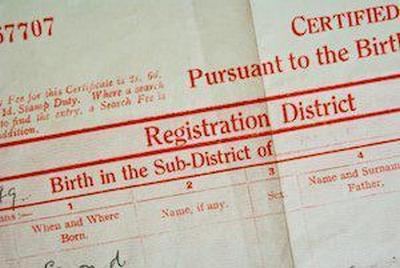Free Initial Consultations
 630-580-6373
630-580-6373With offices in Naperville, Joliet, Wheaton, Plainfield & Chicago
 The breakdown of a couple’s marriage is usually a difficult experience to endure. Divorce can involve a total lifestyle change for those involved, not to mention the many feelings and emotions that it can bring up. A recent article suggests ways to cope with the unsettling and painful feelings that often accompany divorce.
The breakdown of a couple’s marriage is usually a difficult experience to endure. Divorce can involve a total lifestyle change for those involved, not to mention the many feelings and emotions that it can bring up. A recent article suggests ways to cope with the unsettling and painful feelings that often accompany divorce.
Moving on After Divorce
One thing that most people probably agree on is that divorce is often hurtful, no matter the reasons or circumstances surrounding it. Divorce not only causes feelings of loss and disappointment, but also brings with it a disruption of routine and other relationships, as well as uncertainty about the future.
The good news is that many people move on from divorce and successfully recover; it just takes some time. It is normal to experience different feelings and to be less than your usual self for a certain amount of time following a divorce. In addition to seeking the companionship of friends and family during this time, the following tips may be beneficial in coping with a divorce:
 Many people are probably familiar with divorce terms like “no-fault” and “uncontested,” but may not be sure how these legal phrases interrelate and what they mean for practical purposes. Read on for an overview of Illinois divorce law, and a breakdown of these and other familiar terms.
Many people are probably familiar with divorce terms like “no-fault” and “uncontested,” but may not be sure how these legal phrases interrelate and what they mean for practical purposes. Read on for an overview of Illinois divorce law, and a breakdown of these and other familiar terms.
Grounds or No Grounds?
Initially, when making the decision to divorce and end a marriage, the reason for the divorce must be included in the legal pleadings. Spouses either have grounds for the divorce, or they may wish to divorce based irreconcilable differences (no grounds). Grounds are considered reasons for the divorce, while irreconcilable differences indicate the couple cannot point to any accepted grounds, or reasons, for divorce.Grounds for divorce include:
 In the past, conservative views about what constituted appropriate action on behalf of a couple prior to getting married dominated public opinion. Everything from living together to premarital sex was frowned upon. While some people may still hold these views to some extent, there has definitely been a shift in what couples are doing before getting married these days, and a new study says it’s not nearly as bad as many previously thought.
In the past, conservative views about what constituted appropriate action on behalf of a couple prior to getting married dominated public opinion. Everything from living together to premarital sex was frowned upon. While some people may still hold these views to some extent, there has definitely been a shift in what couples are doing before getting married these days, and a new study says it’s not nearly as bad as many previously thought.
Cohabitation Before Marriage
A recently published article discussed not only the prevalence of cohabitation before marriage, but whether it has any real effect on the success of the marriage once it occurs. Over the last five decades, it is estimated that the rate of couples who live together before getting married has increased by about 900 percent. Two-thirds of marriages that occur today are between couples who have already lived together for 31 months, on average. Previous studies indicated that couples who lived together before marriage were 33 percent more likely to divorce than their counterparts who waited to live together until after the marriage ceremony took place.
 While a divorce decree may signal the end of the road for you and your ex-spouse as a couple, you will still remain in each other’s lives if there are children involved. Just because the marriage has been dissolved does not relieve either party of their parenting responsibility. Like it or not, there will still be shared parenting responsibilities with an ex-spouse and it is in the children’s best interest for their parents to work together amicably and efficiently.
While a divorce decree may signal the end of the road for you and your ex-spouse as a couple, you will still remain in each other’s lives if there are children involved. Just because the marriage has been dissolved does not relieve either party of their parenting responsibility. Like it or not, there will still be shared parenting responsibilities with an ex-spouse and it is in the children’s best interest for their parents to work together amicably and efficiently.
Tips for Co-Parenting with an Ex-Spouse
It may be a challenge for parents to put personal issues and feelings aside to form a cordial relationship with their ex-spouse for the benefit of their shared children. However, divorced parents should look at this as a new start and always put their children’s need before their own.
An article suggests the following tips on co-parenting successfully for newly divorced parents:
 The adoption process is different for almost everyone, parents and children included. While some adoptees may never wish to find out more information regarding their birth parents, others are eager to connect on some level with their biological family. As a recent news article reported, the Illinois law giving adoptees the right to view their birth records makes all the difference to the latter group.
The adoption process is different for almost everyone, parents and children included. While some adoptees may never wish to find out more information regarding their birth parents, others are eager to connect on some level with their biological family. As a recent news article reported, the Illinois law giving adoptees the right to view their birth records makes all the difference to the latter group.
Illinois Law
Several years ago, Illinois law changed to give adopted persons the right to view birth records including their birth certificates, documents that were previously unavailable to them, since they were sealed in connection with adoption proceedings. Those adoptees are voicing their appreciation for the law change this week in Springfield. Their appearance also serves another purpose: to encourage states who have not changed their laws in viewing such documents to do so. Many plan on telling their stories at the state capitol.
 Any couple that decides to divorce will have financial considerations to take into account, but issues surrounding divorce finances may affect those couples who divorce later in life the most. Ending a marriage after the age of 50 can have its own set of issues to address when it comes to preserving financial security. Often, couples of that age have investments, savings, accumulated assets, and retirement accounts to sort through.
Any couple that decides to divorce will have financial considerations to take into account, but issues surrounding divorce finances may affect those couples who divorce later in life the most. Ending a marriage after the age of 50 can have its own set of issues to address when it comes to preserving financial security. Often, couples of that age have investments, savings, accumulated assets, and retirement accounts to sort through.
Questions to Ask
Many older couples in this situation may need to take actions that they would not have had to if they remained married, such as going back to work or selling their home. However, there are steps these individuals can take to minimize the the financial effect their divorce will have. According to a financial advice article recently published, there are certain questions divorcees can ask before, during, and after a divorce proceeding to ensure financial security. Many people who have been through a child custody and support proceeding breathe a sigh of relief when the process is over. It is often a long, stressful, and emotional time for all parties involved. However, there are times when the issue deserves to be revisited, since a child support obligation may need to be changed for one reason or another. Illinois law provides for the modification of child support payments when a specified standard is met under certain circumstances.
Many people who have been through a child custody and support proceeding breathe a sigh of relief when the process is over. It is often a long, stressful, and emotional time for all parties involved. However, there are times when the issue deserves to be revisited, since a child support obligation may need to be changed for one reason or another. Illinois law provides for the modification of child support payments when a specified standard is met under certain circumstances.
Circumstances Change
The main reason that a party asks the court to change an award of child support is because something changed either for the non-custodial parent, the custodial parent, or the child. In order to consider a request for modification of a previously awarded child support payment, the law in the state of Illinois requires that the party seeking the modification demonstrates a significant change in circumstances since the time of the last child support order.
 In Part 1 of this article, we discussed research that showed children, on average, are likely to bounce back in the long term after their parents’ divorce, as well as some factors that may inhibit this adjustment. This seems to suggest that perhaps parents may not need to worry as much about the effects their divorce may have on their children, as long as they are able to maintain some stability and appropriate parenting levels throughout the process. Read on for the rest of the research related to this topic, regarding concerns relating to adulthood and improving the chances that children will bounce back.
In Part 1 of this article, we discussed research that showed children, on average, are likely to bounce back in the long term after their parents’ divorce, as well as some factors that may inhibit this adjustment. This seems to suggest that perhaps parents may not need to worry as much about the effects their divorce may have on their children, as long as they are able to maintain some stability and appropriate parenting levels throughout the process. Read on for the rest of the research related to this topic, regarding concerns relating to adulthood and improving the chances that children will bounce back.
 Divorce can be a stressful and emotional time, particularly when children are a point of concern. While many people may be certain about their desire to divorce from their spouse, most are less sure about the effects such a decision may have on their children, and may put off a divorce in an effort to protect them. However, some research indicates that perhaps parents should not be so worried about the effect their divorce will have on their kids.
Divorce can be a stressful and emotional time, particularly when children are a point of concern. While many people may be certain about their desire to divorce from their spouse, most are less sure about the effects such a decision may have on their children, and may put off a divorce in an effort to protect them. However, some research indicates that perhaps parents should not be so worried about the effect their divorce will have on their kids.
Children Likely to Recover
At the outset, it is probably safe to say that many children of divorce feel displaced and disrupted by their parents’ divorce. About 1.5 million children in the United States go through this each year. Despite this, researchers are saying that a much smaller portion of those children deal with significant problems as the result of divorce in the short or long term. In other words, children are likely to recover rapidly from any negative feelings they initially have after learning of their parents’ divorce. A 2002 study showed than many of the negative emotions children experience, including anxiety, anger, shock, or disbelief, are short-term effects. These feelings are likely to decrease or completely cease after two years, with only a minority of kids continuing to experience negative emotions longer than that.
 Of the many concerns that present themselves throughout a divorce case, one is that many parties may have could be about dividing their marital property and other assets. While it may not be a top priority of some couples who plan to divorce, it may be of paramount concern to others, depending on the couple’s circumstances and financial situation. A judge hearing a divorce case has discretion in this area, but the law of the state of Illinois does provide important guidance for consideration on the issue.
Of the many concerns that present themselves throughout a divorce case, one is that many parties may have could be about dividing their marital property and other assets. While it may not be a top priority of some couples who plan to divorce, it may be of paramount concern to others, depending on the couple’s circumstances and financial situation. A judge hearing a divorce case has discretion in this area, but the law of the state of Illinois does provide important guidance for consideration on the issue.
While many may believe that property is equally divided among the parties in the event of divorce, this is simply not always the case. According to Illinois law, the state follows the doctrine of equitable distribution, which means that marital property is divided in a fair way, but that does not necessarily equate to half to one spouse and half to the other. The specific term is “just proportions,” which refers to a number of factors that a court must consider in making its determination about property division among divorcing spouses. Factors the court may consider include, but are not limited to, the following:
